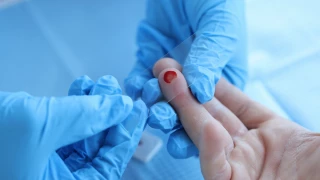
What is Hepatitis C?
- What is Hepatitis C?
- Hepatitis C Symptoms
- How is hepatitis C transmitted?
- How Is Hepatitis C Diagnosed?
- How Is Hepatitis C Treated?
- How to Protect from Hepatitis C Disease?
Hepatitis C is a liver disease caused by the blood-borne hepatitis C virus (HCV). Hepatitis C is an important health problem that is struggling with about 70 million people worldwide. About 750,000 people in Turkey, that is, 1 out of every 100 people, suffer from hepatitis C. Medicines that can cure hepatitis C completely are currently in use. Hepatitis C is a major disease caused by liver failure.
Hepatitis C Symptoms
The symptoms of hepatitis C infection can vary depending on the acute or chronic conditions that the virus can cause. Acute illness can cause the following symptoms:
- Flu-like symptoms (muscle pain and high fever)
- Feeling tired all the time
- Anorexia abdominal pain
- Black urine nausea
Although the duration of acute illness is less than 6 months, the virus may be removed from the body or acute liver failure may occur due to the disease. In cases where the hepatitis C virus causes chronic illness, it can cause mild fatigue and some cognitive problems, which are the first symptoms. However, several years after these initial symptoms appear, the virus can cause liver cirrhosis followed by liver failure.
How is hepatitis C transmitted?
Uncontrolled transportation of blood and blood products in terms of risk of infection, Share personal hygiene products (such as toothbrushes, razors or nail clippers) containing blood infected with the Hepatitis C virus, Dental treatment with improperly disinfected instruments, Use of intravenous materials such as injection needles by more than one person Use non-sterile medical and cosmetic supplies (manicure-pedicure supplies, etc.) or Tattooing and piercing on non-sterile materials Transplantation of organs infected with the hepatitis C virus In terms of risk of infection, use uncontrolled hemodialysis machines for dialysis The possibility of sexual transmission of hepatitis C is very low However, bleeding during sexual intercourse or ulcers caused by trauma and other infections may be the cause of transmission.
Hugging, kissing, sharing food or drink with people with hepatitis C, or being in the same environment will not pose a risk of transmission. Hepatitis C cannot be transmitted from the toilet or swimming pool. Similarly, mosquito bites do not cause hepatitis C. Although the risk of transmission of the virus to infants in pregnant women with hepatitis C is estimated to be less than 10%, the gestation period in which this transmission occurs has not been clearly determined. No risk of breastfeeding infants from mothers of hepatitis C carriers was found. However, breastfeeding may be interrupted if the nipple ruptures or bleeds or if the mother's viral load is too high.
How Is Hepatitis C Diagnosed?
Unlike other hepatitis C, hepatitis C does not usually cause jaundice. Therefore, it is difficult to diagnose the disease in the early stages. 30% of hepatitis C patients are completely cured. 70% of people suffer from chronic diseases. Cirrhosis can be seen in 20-30% of chronic patients. Liver cancer may account for 1-2% of these. However, these developments took place for many years. After the early stages of the disease, it becomes chronic only after 10 years. The development time of liver cirrhosis is about 20 years, and the development time of liver cancer is about 30 years. Therefore, hepatitis C is a slowly progressive disease. Men over the age of 40 have a higher risk of cirrhosis.
How Is Hepatitis C Treated?
If hepatitis C is detected early, the chances of recovery are high. Most of these patients were found when tested or donated blood for other reasons, it's unclear at what stage they are. Many tests and liver biopsies are done as needed to monitor the progression of the disease. Based on these findings, plan the measures taken and treatment measures.
How to Protect from Hepatitis C Disease?
There is no vaccine for hepatitis C. Research on this subject continues. The precaution that can be taken is to comply with the general cleaning regulations and not to use materials used by others such as needles and razors.





